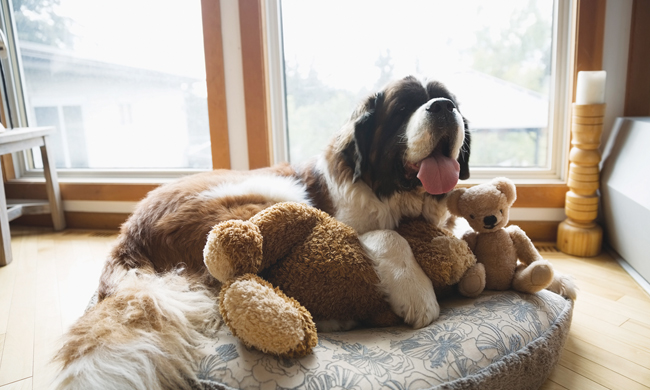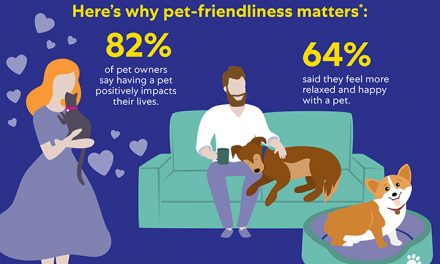(Family Features) Summer can be a stressful time of year for dogs who experience anxious behaviors, with triggers like fireworks, thunderstorms, summer travel and more taking a toll on pets. While you may not be able to prevent your pet’s anxious behaviors entirely, there are ways you can ease your dog’s apprehension and manage the behavior it can potentially cause.
In a survey* by Purina Pro Plan Veterinary Supplements, 62% of dog owners reported seeing regular anxious behaviors in their dogs, such as excessive barking, compulsive jumping and shaking or trembling. Yet 35% of owners surveyed believe their dogs’ personalities are among the primary causes of concerning behaviors.
“It’s important to talk to your veterinarian if your dog is displaying undesirable behaviors,” said Jason Gagne, DVM, DACVN and director of veterinary technical communication for Pro Plan Veterinary Diets. “What might be perceived as a characteristic of a particular breed or part of a dog’s personality could really be an anxious behavior that needs attention.”
Gagne suggests pet owners take these steps to help keep pets comfortable and calm.
Start preparing early
For stressful situations near your home, such as fireworks, help prepare your dog by exposing him or her to recorded firework or thunder sounds. Begin training several months in advance and gradually increase the volume while rewarding your dog for maintaining calm behavior.
Create a safe space
Prepare a special area in your home where your dog can feel safe and secure during noisy instances. If crate trained, your dog may feel most secure there with a favorite toy to stay occupied. If not crate trained, put the bed in a quiet place during fireworks or thunderstorms, close the windows and play some music to help muffle sounds.
Consider a probiotic
Pay your vet a visit to discuss your dog’s behavior and see if he or she could benefit from a probiotic that’s been shown to help dogs maintain calm behavior, like Pro Plan Veterinary Supplements Calming Care. This probiotic supplement, available through veterinarians, also helps dogs maintain positive cardiac activity during stressful events, promoting a positive emotional state. It may take up to six weeks to see results, so give yourself plenty of lead time.
Make your dog comfortable
Giving your dog a special treat or favorite toy during a potentially upsetting event might help establish a positive association with these loud noises. Calming wraps may help for some dogs, too. Like swaddling for infants, these may help your dog feel secure during stressful situations.
Make car travel a positive experience
If car rides bring out your dog’s anxious behaviors, get him or her used to the idea of car travel before summer road trips. Use a crate or dog carrier that’s large enough for your dog to lay down comfortably. Use a reward such as a favorite treat or interactive toy to get him or her excited to get in the car and crate before taking a trip.
Stay calm
Pets look to their owners for reassurance, so showing them a calm, relaxed demeanor helps them understand there is no real danger.
For more information, visit Purina.com or speak to your veterinarian.
*The survey data was collected by Relevation Research via an online survey from Aug. 15-19, 2018. Eight-hundred-twenty-six nationally representative dog owners qualified for and completed the survey. Qualified participants were men and women age 18 and older, owned one or more dogs (age 13 months or older), were household members most responsible for taking the dog(s) to a veterinarian and had taken the dog(s) to a veterinarian in the past 12 months.
Photo courtesy of Getty Images
SOURCE:
Purina




















